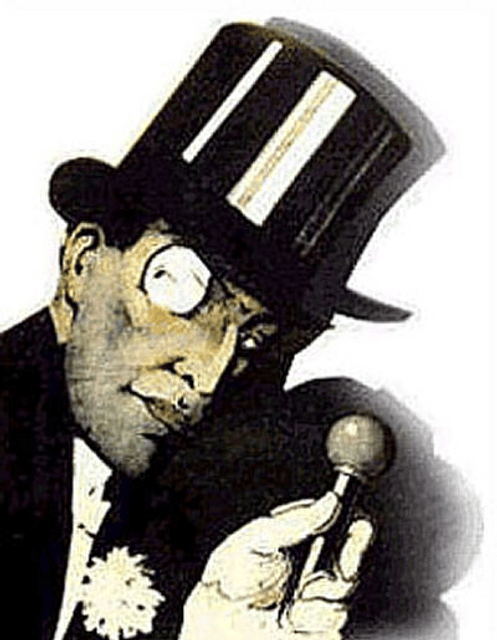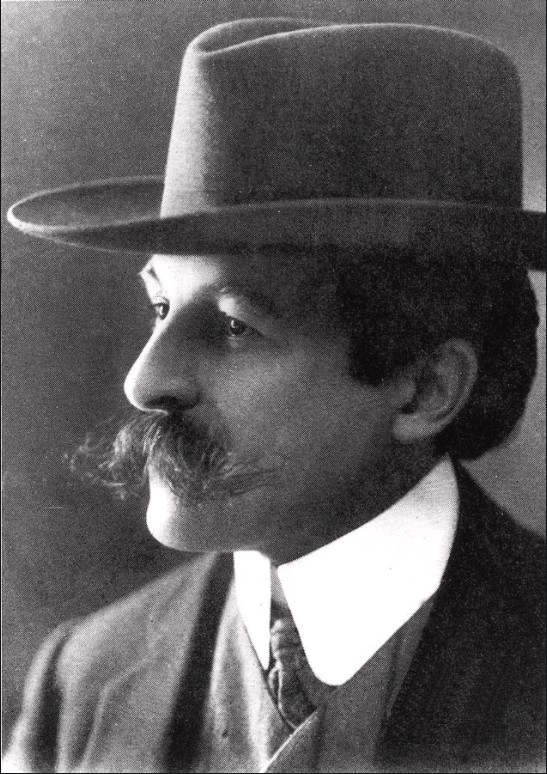Arsène Lupin

Arsène Lupin

| Arsène Lupin | |
|---|---|
| First appearance | "The Arrest of Arsène Lupin" (1905) |
| Created by | Maurice Leblanc |
| Information | |
| Species | Human |
| Gender | Male |
| Occupation | Gentleman thief |
| Nationality | French |

Maurice Leblanc (1864–1941), Arsène Lupin's creator
Arsène Lupin is a fictional gentleman thief and master of disguise created in 1905 by French writer Maurice Leblanc. He was originally called Arsène Lopin, until a local politician of the same name protested. The character was first introduced in a series of short stories serialized in the magazine Je sais tout. The first story, "The Arrest of Arsène Lupin", was published on 15 July 1905.
Lupin was featured in 17 novels and 39 novellas by Leblanc, with the novellas or short stories collected into book form for a total of 24 books. The number becomes 25 if the 1923 novel The Secret Tomb is counted: Lupin doesn't appear in it, but the main character Dorothée solves one of Arsène Lupin's four fabulous secrets.
The character has also appeared in a number of books from other writers as well as numerous film, television, stage play, and comic book adaptations. Five authorized sequels were written in the 1970s by the celebrated mystery writing team of Boileau-Narcejac.
| Arsène Lupin | |
|---|---|
| First appearance | "The Arrest of Arsène Lupin" (1905) |
| Created by | Maurice Leblanc |
| Information | |
| Species | Human |
| Gender | Male |
| Occupation | Gentleman thief |
| Nationality | French |
Origins
Arsène Lupin is a literary descendant of Pierre Alexis Ponson du Terrail's Rocambole, whose adventures were published from 1857 to 1870. Like him, he is often a force for good, while operating on the wrong side of the law. Those whom Lupin defeats, always with his characteristic Gallic style and panache, are worse villains than he. Lupin shares distinct similarities with E. W. Hornung's archetypal gentleman thief A. J. Raffles, whose stories were published from 1898 to 1909. Both Raffles and Lupin can be said to anticipate and have inspired later characters such as Louis Joseph Vance's The Lone Wolf (created in 1914) and Leslie Charteris's The Saint (created in 1928).
The character of Arsène Lupin might also have been based by Leblanc on French anarchist Marius Jacob (1879–1954), whose trial made headlines in March 1905, but Leblanc had also read Octave Mirbeau's Les 21 jours d'un neurasthénique (1901), which features a gentleman thief named Arthur Lebeau, and had seen Mirbeau's comedy Scrupules (1902), whose main character is a gentleman thief.
Fantasy elements
Several Arsène Lupin novels contain some fantasy elements: a radioactive 'god-stone' that cures people and causes mutations is the object of an epic battle in L’Île aux trente cercueils; the secret of the Fountain of Youth, a mineral water source hidden beneath a lake in the Auvergne, is the goal sought by the protagonists in La Demoiselle aux yeux verts; finally, in La Comtesse de Cagliostro, Lupin's arch-enemy and lover is none other than Joséphine Balsamo, the alleged granddaughter of Cagliostro himself.
Arsène Lupin and Sherlock Holmes

Arsène Lupin Contre Herlock Sholmes
Leblanc introduced Sherlock Holmes to Lupin in the short story "Sherlock Holmes Arrives Too Late" in Je sais tout No. 17, 15 June 1906. In it, an aged Holmes meets a young Lupin for the first time. After legal objections from Doyle, the name was changed to "Herlock Sholmes" when the story was collected in book form in Volume 1.
Sholmes returned in two more stories collected in Volume 2, "Arsène Lupin contre Herlock Sholmes", and then in a guest-starring role in the battle for the secret of the Hollow Needle in L'Aiguille creuse. Arsène Lupin contre Herlock Sholmes was published in the United States in 1910 under the title "The Blonde Lady" which used the name "Holmlock Shears" for Sherlock Holmes, and "Wilson" for Watson.
In 813, Lupin manages to solve a riddle that Herlock Sholmes was unable to figure out.
Sherlock Holmes, this time with his real name and accompanied by familiar characters such as Watson and Lestrade (all copyright protection having long expired), also confronted Arsène Lupin in the 2008 PC 3D adventure game Sherlock Holmes Versus Arsène Lupin. In this game Holmes (and occasionally others) are attempting to stop Lupin from stealing five valuable British items. Lupin wants to steal the items in order to humiliate Britain, but he also admires Holmes and thus challenges him to try to stop him.
In a novella "The Prisoner of the Tower, or A Short But Beautiful Journey of Three Wise Men" by Boris Akunin published in 2008 in Russia as the conclusion of "Jade Rosary Beads" book, Sherlock Holmes and Erast Fandorin oppose Arsène Lupin on December 31, 1899.